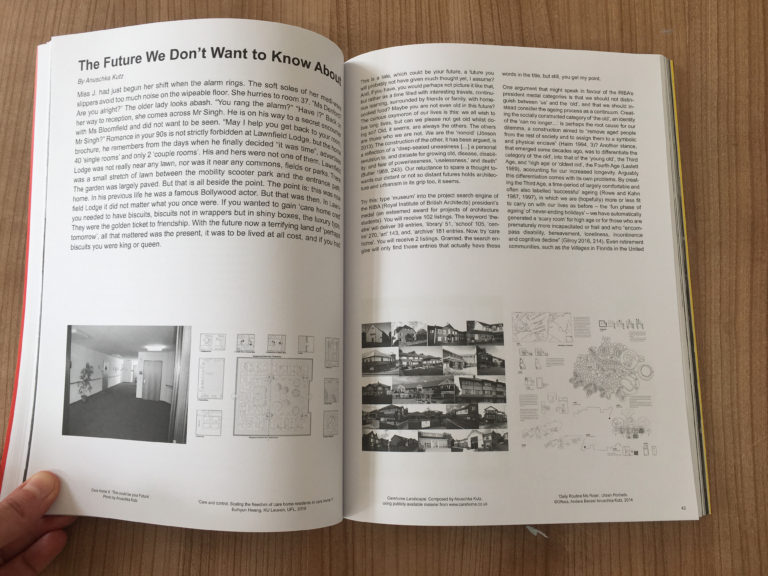“The Future we don’t want to know about.”
MONU, no.30 / Spring (2019): 42–49.
Journal Article
MONU’s 2019 Spring issue entitled Late Life Urbanism is focusing on how architecture and cities will be impacted by current and on-going demographic and societal changes that have led to increasingly ageing populations. Anuschka Kutz’s article discusses a future that we will hopefully all encounter; and yet, a future that we don’t really want to face… One of the great oxymorons of our modern times is that we all hope to live long lives but that we do not wish to get old in the process. Is our collective inertia – in the sense that if we look away we may not have to face what we don’t want to see – partially responsible for a creative urban and architectural stalemate here? How ‘complicit’ might our architectural education be in this? Taking a brief look at the RIBA president’s medals – a prestigious price for architecture student projects – for example, surfaces 102 entries for ‘museums’, whilst the term ‘care home’ will bring up 2 results. Is it that incapacitated elderly do not look as good in perspectives as smiling skateboarders on museum forecourts? Or is the subject still a disagreeable topic, as Simone De Beauvoir has argued? The care home remains a place nobody wants to go to or be in; it is the ‘scary room’ of Ageing (Gilroy, 2014) where those of us will ‘end up’ who can no longer live independent lives (after a fun phase of early ageing, perhaps); until such time when we care to create alternatives. The article starts out with a fictional care home, titled ‘Lawnfield Lodge’. Being neither surrounded by lawn nor close to a park or any other amenities for that matter, it stands in for the hundreds of ‘template’ care homes that are splattered all over the UK. How do these places relate to concepts such as the ‘right to the city’ (Lefebvre 1968; Harvey 2008) and the freedom to live an independent human life? Rather than making all-encompassing statements about the ‘remedies’ we may need to invent, the article presents a slow ethnographic approach towards everyday spatial tactics of older people before presenting extracts from International Master student projects created in the studio Urban Field Lab at KU Leuven, where Anuschka Kutz has been Visiting Professor for the past 5 years.

